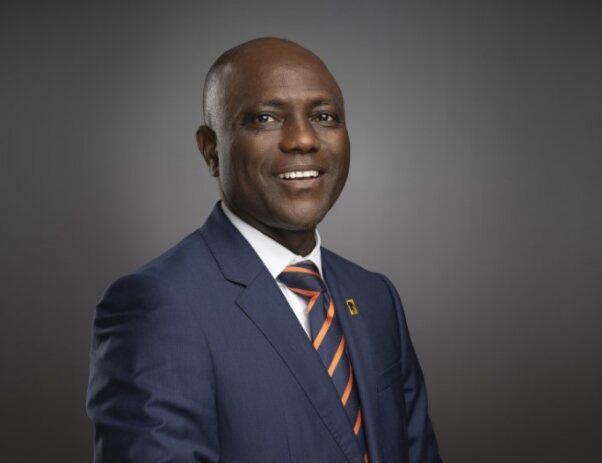Business
More Stringent Measures for LGs as Daily Withdrawal Pegged at N.5m from June

The Nigeria Financial Intelligence Unit has said no cash withdrawal exceeding N500,000 per day could be made from any local government account with effect from June 1, 2019, noting that any other transaction must be done through valid cheques or electronic funds transfer.
The agency also promised sanctions for any commercial bank which allowed transactions from any local government account without monies first reaching the LG account.
The NFIU in an emailed statement by its acting Chief Media Analyst, Ahmed Dikko, on Monday, directed all financial institutions, relevant stakeholders, public servants and the public to ensure full compliance with the provisions of the guidelines which had been submitted to financial institutions and relevant enforcement agencies.
It stated that the directive was sequel to findings which indicated that cash withdrawals and transactions of the State and Joint Local Government Accounts posed the “biggest corruption, money laundering and security threats at the grassroots levels and to the entire financial system and the country as a whole.”
The anti-graft agency further explained that the measures were necessitated by the threats of isolation of the Nigerian financial system by other international financial systems on account of the deficiencies in the nation’s anti- money laundering and counter-terrorism financing implementation.
The NFIU explained that it would not allow the system to suffer the deliberate and expensive infractions or violations by public officials and private business interests.
It said, “Henceforth, all errant individuals and companies will be allowed to face direct international and locally targeted sanctions, in order not to allow any negative consequences to fall on the entire country.
“To be precise, with effect from 1st June, any bank that allows any transaction from any local government account without monies first reaching a particular local government account will be sanctioned 100 per cent both locally and internationally.”
“In addition, a provision is also made to the effect that there shall be no cash withdrawal from any local government for a cumulative amount exceeding N500, 000 per day. Any other transaction must be done through valid cheques or electronic funds transfer.”
The agency further disclosed that the complete guidelines had been released to the Governor of the Central Bank of Nigeria; the Chairman, Economic and Financial Crimes Commission; the Chairman, Independent Corrupt Practices Commission and Chief Executive Officers of all banks and other financial institutions.
“Any state government that is willing to seek any expert economic advice in the unlikely event of these guidelines constituting an inconvenience to the management of the state can work with the NFIU or CBN,” the statement added.
The Chairman, Human Resource Development Centre, Mr Olanrewaju Suraju, described the initiative as right step in the right direction, saying it would curb free flow of money and financial crimes.
He added that it would promote better accountability and forestall a situation where state governors hijack local government accounts.
Suraju said, “This will strongly encourage and provide all the necessary support for the anti-corruption agencies and the NFIU in this regard. The CBN, the ICPC and the EFCC must also rise up to this challenge by ensuring that they collaborate with and support the NFIU in achieving this.
“Not only the liable local government officials should be investigated and prosecuted; the bank concerned should also not only be fined but also prosecuted accordingly.
“If this is effectively enforced, it will allow for the operations of the local government account by local government officials. And also to track where governors are usurping the powers of the local government chairmen.”
But the Executive Chairman, Centre for Anti-Corruption and Open Leadership, Mr Debo Adeniran, said the N500,000 daily cash withdrawal threshold might be too low for the operations of LGAs.
He advocated that it be moved up to about N2.5m.
“I think the cash withdrawal limit should be moved up to about N2.5m because there are occasions when for network reasons some payments have to be made.
“Even we, in the civil society organisation, sometimes we want to pay honorarium or transport support for those who attend our programmes and sometimes, we have more than 1,000 people and we want to pay each participant N1, 000. We cannot do transfer in all the cases because it will be cumbersome.
“So, N500,000 is too little for local governments. For individuals, that is the limit. For a local government, I think it should be more than that.”
On its part, the Socio-Economic Rights and Accountability Project, said the initiative should not be limited to the LGAs but should be extended to the state and federal levels.
SERAP’s Deputy Director, Mr Kolawole Oludare, said, “The NFIU directive though welcome as an anti-corruption strategy is somewhat misplaced in the light of grand corruption at the state and federal levels.
“Corruption and attendant money laundering is better curbed at not only the local government but also all levels of government by the abolishment of security votes.”
The Punch
Business
No System Upgrade Ongoing, All Operational Systems Functional, FirstBank Clarifies

Leading financial institution, FirstBank of Nigeria Limited, has debunked a misleading report circulating in the media regarding a system upgrade at FirstBank, saying that no such upgrade is underway and that all operational systems are functioning maximally.
The management of the bank made this clarification in a statement made available to this medium.
The statement reads in full:
We wish to address a misleading report circulating in the media regarding a system upgrade at FirstBank.
The message which was incorrectly interpreted and reported was sent to, and intended for our vendors only and focused on transitioning from our current I-Supplier Platform (our automated platform that connects us to suppliers) to a new Cloud-based Supplier Platform (worldclass platform for managing suppliers), to enable additional capabilities and benefits for our vendors.
Please be informed that no system upgrade is currently underway, and all our customer applications are fully operational. We are not experiencing disruption to our services, and our banking systems, customer transactions, channels, etc, will not be affected by the enhanced supplier platform.
Rest assured that our commitment to seamless service delivery remains unwavering as you continue to enjoy uninterrupted access to our services.
Business
Q3 2024: UBA Grows Net Interest Income by 149%, PBT up by 20% to N603bn

Riding on its recently released half-year financials, Africa’s Global Bank – United Bank for Africa (UBA) Plc, has announced its unaudited results for the third quarter ended September 30, 2024, where it recorded strong and impressive growth across all its key indicators.
As in the first two quarters of the current fiscal year, the bank’s gross earnings grew significantly by 83.2 per cent to N2.398 trillion up from N1.308 trillion recorded in September last year, while its net Interest income which stood at N443.0 billion at the end of the third quarter in 2023, rose impressively by 149 per cent to N1.103 trillion in the period under consideration.
The bank’s financial report filed with the Nigerian Exchange Limited on Monday also indicated a 20.2 per cent increase in Profit before Tax (PBT) to close at N603.48 billion compared to N502.09billion recorded at the end of the third quarter of 2023, while profit after tax also rose remarkably by 16.9 per cent from N449.26 billion recorded a year earlier to N525.31 billion in the period under review.
As in the preceding two quarters this year, UBA continues to maintain a very strong balance sheet, with Total Assets rising to N31.801 trillion, representing a 54.0 per cent increase over the N20.653 trillion recorded at the end of December 2023, just as the bank benefitted largely from its technology-led initiatives targeted at improving customer experience over the past few years, with Total Deposits rising to N26.50 trillion, representing a 52.7 per cent rise, up from N17.355 trillion at the end of the last financial year.
UBA shareholders’ funds remained very strong at N3.585 trillion up from N2.030 trillion recorded in December 2023, again reflecting a strong capacity for internal capital generation and growth.
Commenting on the result, UBA’s Group Managing Director/CEO, Mr. Oliver Alawuba, expressed pleasure that the Group continues to record strong and sustainable growth in its various revenue streams, building on its strong performance earlier in the year.
“The UBA Group achieved a profit before tax of N603.5 billion and our intermediation business continues to show strong growth with net interest income expanding by 149 per cent YoY to N1.10trillion and NIM closing at 8.03 per cent, which is 17.60 per cent above the 2023 position, despite persisting macroeconomic headwinds, geopolitical tensions, insecurity, inflationary pressure and exchange rate volatilities across our markets,” Alawuba stated.
According to the GMD, the Bank’s performance has been underpinned by consistent strong growth on all core and sustainable banking income lines, as he added that “Our substantial investments in technology are yielding tangible business value. This commitment is instrumental in delivering enhanced customer experiences and optimizing operational efficiency.”
The Bank’s Executive Director, Finance & Risk, Ugo Nwaghodoh, said, “I am delighted at the milestone reached in driving operational efficiency, reflected in cost-to-income ratio normalizing around the 50 per cent range. Shareholders’ funds recorded a 77 per cent growth from N2 trillion at FYE2023 to N3.59 trillion demonstrating the Group’s significant capacity for future growth.
On plans to consolidate its performance for the rest of the 2024 financial year and beyond, Nwaghodoh said, “We remain on track with various strategies to optimize our cost of funds and operating expenses. Furthermore, the Group has finalized plans to shore up its share capital to support its medium to long term aspirations, whilst aligning with the recent regulatory requirement in Nigeria and other jurisdictions.”
On plans to consolidate its performance for the rest of the 2024 financial year and beyond, Nwaghodoh said, “We remain on track with various strategies to optimize our cost of funds and operating expenses. Furthermore, the Group has finalized plans to shore up its share capital to support its medium to long term aspirations, whilst aligning with the recent regulatory requirement in Nigeria and other jurisdictions.”
He explained that UBA remains committed to sustainable growth in its core banking revenue lines and maintaining its strong compliance and risk management culture, even as the Group identifies further opportunities to expand.
United Bank for Africa Plc is a leading Pan-African financial institution, offering banking services to more than forty-five million customers, across 1,000 business offices and customer touch points in 20 African countries. With presence in New York, London, Paris and Dubai, UBA is connecting people and businesses across Africa through retail, commercial and corporate banking, innovative cross-border payments and remittances, trade finance and ancillary banking services.
Business
UBA Foundation Commences 2024 National Essay Competition for Youths

UBA Foundation, the Corporate Social Responsibility arm of the United Bank for Africa (UBA) Plc, has announced the commencement of the 2024 edition of its annual National Essay Competition (NEC) with a Call for Entries in Nigeria.
Now in its 14th year, the annual National Essay Competition (NEC) is part of the UBA Foundation’s education initiative aimed at championing literacy and encouraging intellectual development among senior secondary school students across Nigeria and the African continent.
The 2024 edition will see increased participation from senior secondary school students across Nigeria as they can conveniently submit their entries from the comfort of their homes or schools via the UBA Foundation NEC digital submission portal at www.ubagroup.com/uba-foundation/national-essay-competition
The essay topic for the call for entries is “Discuss the Impact of Carbon Emission on Climate in Nigeria: Challenges and Solutions”. Students are expected to properly research, write, scan and upload their handwritten essays to the digital portal on or before November 8, 2024.
The essays will be graded by renowned English professors who will then select the best 75 entries, which will be rewarded with N75,000 cash. A second competition will be held across four regions in Nigeria – Abuja, Enugu, Lagos and Port Harcourt where the 75 candidates will compete to be one of the 20 finalists. These 20 finalists will thereafter write a third essay where the top three will be selected.
The Foundation has also announced a substantial increase in educational grants as the first-place winner will receive N7.5 million to study at any African university of their choice, while the second and third-place winners will receive N5 million and N3.5 million, respectively.
The Chief Executive Officer, UBA Foundation, Bola Atta, who spoke ahead of the flag-off of this year’s completion, noted that despite the current global economic challenges, UBA Foundation remains steadfast in their commitment to educational excellence by significantly increasing the grant prizes this year
“We are aware of what families and parents are going through especially in the face of the current economic climate in Nigeria, and by raising the first-place prize to N7.5 million, with N5 million and N3.5 million for second and third places respectively, we are making a bold statement about our dedication to African education. The increase in grant prizes reflect our understanding of the rising costs of quality education and our determination to ensure that exceptional students can pursue their academic dreams without financial constraints.” Atta said
Apart from the 75 best essays, the 20 finalists will go home with brand new Laptops and other educational tools to help them with their studies and other tertiary research work. Also, the teachers of the school with the highest number of entries will be rewarded.
Atta pointed out that professors from leading Nigerian universities will serve as judges to evaluate the entries at all levels, to ensure fairness and transparency.
Speaking on the foundation’s unwavering commitment to development across Africa, Bola Atta, reiterated that NEC is a testament to UBA Foundation’s broader education initiatives, which include the ‘Read Africa’ program, which has distributed hundreds of thousands of books to students across the continent.
“The competition stands as a beacon of our commitment to nurturing Africa’s next generation of leaders and thinkers,” Atta said. “Through initiatives like this and our ‘Read Africa’ program, we’re not just promoting literacy; we’re investing in the intellectual capital that will shape Africa’s future”
The National Essay Competition has been rolled out in other African countries where UBA operates, in order to open up the opportunity for more African children to benefit from the educational grants.
UBA Foundation embodies the UBA Group’s CSR objectives and seeks to impact positively societies through several laudable projects and initiatives. Through its Education pillar, the Foundation has donated hundreds of thousands of books to students across Africa under the ‘Read Africa’ initiative aimed at encouraging and promoting the reading culture in African youths. Its National Essay Competition has also afforded the opportunity to hundreds of students to improve their lives through higher education.






